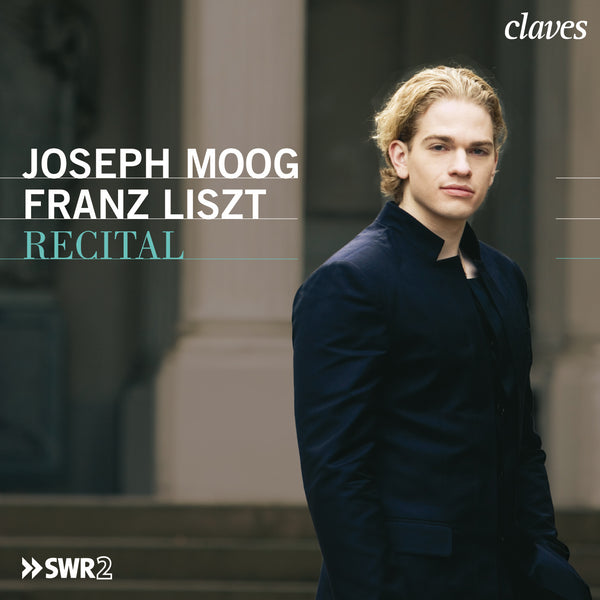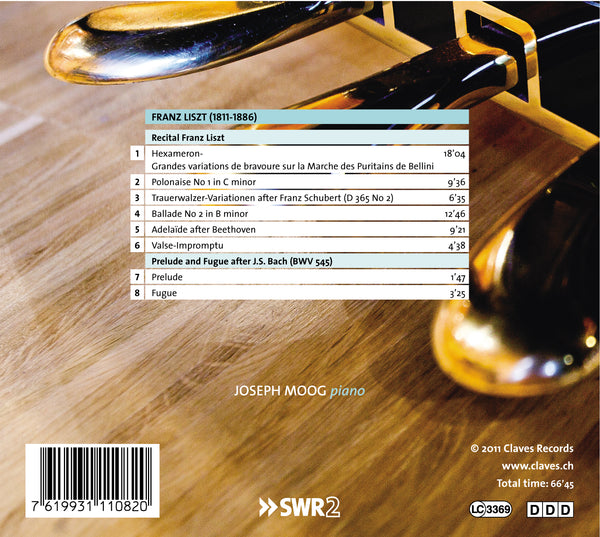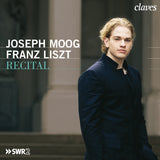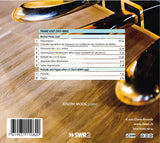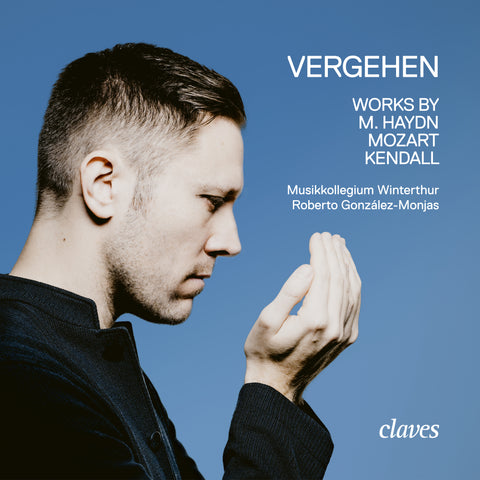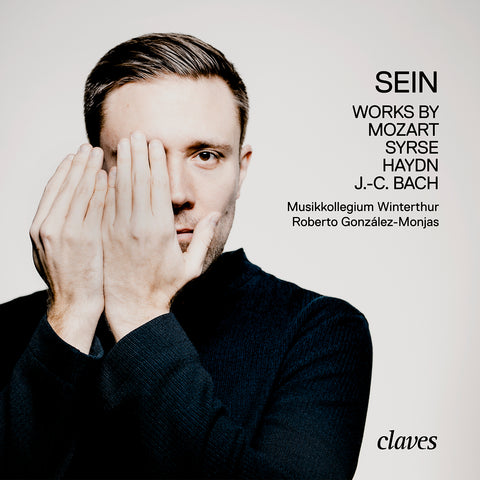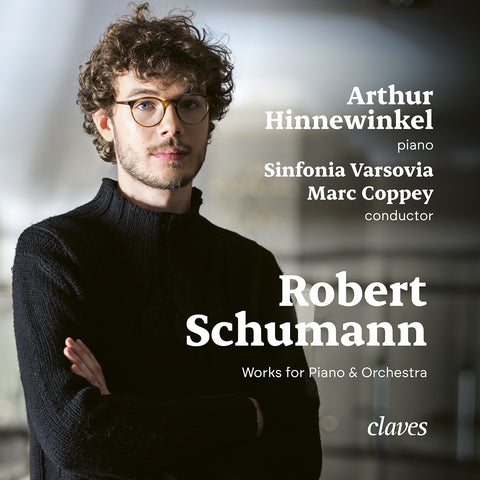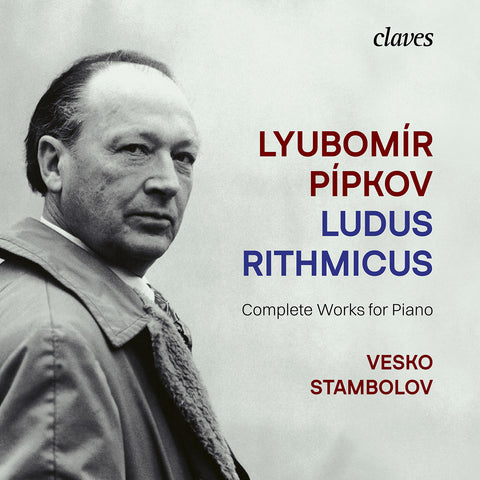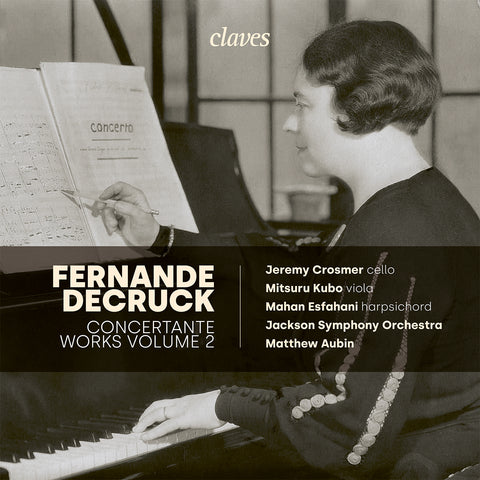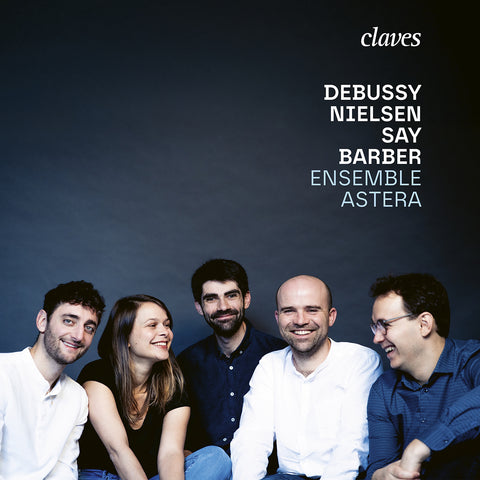(2011) Liszt: Piano Recital
CD set: 1
Catalog N°:
CD 1108
Release: 01.05.2011
EAN/UPC: 7619931110820
- UPC: 885686792520
This album is now on repressing. Pre-order it at a special price now.
CHF 18.50
This album is no longer available on CD.
This album has not been released yet. Pre-order it from now.
CHF 18.50
This album is no longer available on CD.
This album is no longer available on CD.
VAT included for Switzerland & UE
Free shipping
This album is now on repressing. Pre-order it at a special price now.
CHF 18.50
This album is no longer available on CD.
This album has not been released yet.
Pre-order it at a special price now.
CHF 18.50
This album is no longer available on CD.
This album is no longer available on CD.
LISZT: PIANO RECITAL
Anniversaries are just great! The bicentenary of the birth of Franz Liszt - outstanding, hero-worshipped artist, star of the romantic 19th century - has given Joseph Moog the chance to present an anthology of rare transcriptions and paraphrases.
Throughout this generous programme, the young virtuoso takes us along previously virtually unexplored paths, with evocations of Bach, Beethoven, Schubert and Rossini, and settings such as a cathedral, an opera, a ball, or the delicate intimacy of a Romantic salon, illustrating Franz Liszt’s extraordinary versatility in every situation.
As a complement to these transcriptions and paraphrases, Joseph Moog chose the second Ballade, rare testimony of the introverted Liszt, contrasting with the sparkling Valse-Impromptu that closes this outstanding recital.
Liszt, piano works
More than half of the entries in Franz Liszt’s catalogue of works refer to transcriptions, paraphrases or arrangements. Liszt tried it all, took it all in, re-created absolutely everything: every imaginable style (pieces for organ, symphonic orchestra, operas, lieder), whether from Bach to Beethoven, Schubert to Schumann, Bellini to Wagner or Verdi, as well as his own compositions. For piano solo, piano four hands, piano duo, chamber orchestra, organ, voice and orchestra. No other composer broached the subject with such abundance and assiduousness.
The explanation often given for this phenomenon is Liszt’s generosity, as well as his love for the works of others: how best to show admiration than through transcription? Indeed, but it should also be mentioned that the brilliant transcriber almost always took over the original work. Everything he laid hands on became his own, became Liszt, yet always with utter respect for the transcribed work. Thus, Beethoven’s symphonies, in their reduction for piano solo, become a work of amazing pianistic virtuosity, but never fail the Beethoven spirit. Similarly, the transcriptions of Schubert lieder, obviously very “rich” since they have to integrate the vocal part into the piano part, are at the same time a devoted tribute to Schubert’s asceticism. The author André Suarès summarized in a beautiful formula the paradox of Liszt transcriptions, both selfless and distinctive, conscientious and free: “It seems he gives his name to that which he admires”.
Thus, the distance that separates Liszt’s «original» compositions from his transcriptions is not as great as one might have imagined. The creator’s art drew on the transcriber’s. It has been pointed out that his piano Sonata, the most important of his piano works, is based on the principle of variation-repetition, a principle that precisely forms the core of his work as a transcriber.
The present CD thus alternates most appropriately between transcriptions and “original” works: Liszt is totally present in each of these compositions. [..]
Joseph Moog
At the age of 21, Joseph Moog already belongs to the most outstanding international young pianists. He has attracted special interest through his highly virtuoso playing, his mature musicianship, and through his compositions, which he regularly presents in his recitals.
Joseph Moog has performed as a soloist with orchestras such as the
Deutsche Radio Philharmonie Saarbrücken-Kaiserslautern, the Slowenia Philharmonic, the Deutsche Streichphilharmonie, the Tchaikovsky Symphony Orchestra of Radio Moscow, the Deutsche Staatsphilharmonie Rheinland Pfalz and the Münchner Rundfunkorchester. Internationally, he has performed, among others, in the Vienna Konzerthaus, Salzburg Festspielhaus, Prague Rudolfinum, in Rio de Janeiro,Tel Aviv, Ljubljana, Basel, Paris and Joensuu. His debut in April 2008 at the "New Grand National Theatre" in Beijing was transmitted throughout the country by the Chinese television.
Joseph Moog has worked under the direction of well-known conductors such as Andrey Boreyko, Aleksander Vedernikov, Christoph Poppen, Shao-Chia Lü, Ari Rasilainen, En Shao, Juanjo Mena, Howard Griffiths or Michael Sanderling.
Joseph Moog is a frequently requested guest at renowned festivals such as the Schleswig-Holstein Festival, Sommets Musicaux de Gstaad, Rheingau Musikfestival, Oberstdorfer Musiksommer, Festspiele Mecklenburg Vorpommern and Schwetzinger Schlossfestspielen
Many prizes and awards pave this young pianist's path, such as the Förderpreis 2008 for Young Artists in Rheinland-Pfalz, the Rhein-Mosel Musikpreis 2008, the Förderpreis of the Schleswig-Holstein Festival 2006 and the Prix Marguerite Dütschler 2006 of the Sommets Musicaux de Gstaad. He is prize-winner of the Orpheum Foundation Zurich, and received the music prize of the "Verband der Deutschen Konzertdirektion" 2006, which was a most special recognition of Joseph Moog's artistic development. He was recently awarded the scholarship of the Mozartgesellschaft Dortmund, and nominated Young Steinway Artist.
Anniversaries are just great! The bicentenary of the birth of Franz Liszt - outstanding, hero-worshipped artist, star of the romantic 19th century - has given Joseph Moog the chance to present an anthology of rare transcriptions and paraphrases.
Throughout this generous programme, the young virtuoso takes us along previously virtually unexplored paths, with evocations of Bach, Beethoven, Schubert and Rossini, and settings such as a cathedral, an opera, a ball, or the delicate intimacy of a Romantic salon, illustrating Franz Liszt’s extraordinary versatility in every situation.
As a complement to these transcriptions and paraphrases, Joseph Moog chose the second Ballade, rare testimony of the introverted Liszt, contrasting with the sparkling Valse-Impromptu that closes this outstanding recital.
Liszt, piano works
More than half of the entries in Franz Liszt’s catalogue of works refer to transcriptions, paraphrases or arrangements. Liszt tried it all, took it all in, re-created absolutely everything: every imaginable style (pieces for organ, symphonic orchestra, operas, lieder), whether from Bach to Beethoven, Schubert to Schumann, Bellini to Wagner or Verdi, as well as his own compositions. For piano solo, piano four hands, piano duo, chamber orchestra, organ, voice and orchestra. No other composer broached the subject with such abundance and assiduousness.
The explanation often given for this phenomenon is Liszt’s generosity, as well as his love for the works of others: how best to show admiration than through transcription? Indeed, but it should also be mentioned that the brilliant transcriber almost always took over the original work. Everything he laid hands on became his own, became Liszt, yet always with utter respect for the transcribed work. Thus, Beethoven’s symphonies, in their reduction for piano solo, become a work of amazing pianistic virtuosity, but never fail the Beethoven spirit. Similarly, the transcriptions of Schubert lieder, obviously very “rich” since they have to integrate the vocal part into the piano part, are at the same time a devoted tribute to Schubert’s asceticism. The author André Suarès summarized in a beautiful formula the paradox of Liszt transcriptions, both selfless and distinctive, conscientious and free: “It seems he gives his name to that which he admires”.
Thus, the distance that separates Liszt’s «original» compositions from his transcriptions is not as great as one might have imagined. The creator’s art drew on the transcriber’s. It has been pointed out that his piano Sonata, the most important of his piano works, is based on the principle of variation-repetition, a principle that precisely forms the core of his work as a transcriber.
The present CD thus alternates most appropriately between transcriptions and “original” works: Liszt is totally present in each of these compositions. [..]
Joseph Moog
At the age of 21, Joseph Moog already belongs to the most outstanding international young pianists. He has attracted special interest through his highly virtuoso playing, his mature musicianship, and through his compositions, which he regularly presents in his recitals.
Joseph Moog has performed as a soloist with orchestras such as the
Deutsche Radio Philharmonie Saarbrücken-Kaiserslautern, the Slowenia Philharmonic, the Deutsche Streichphilharmonie, the Tchaikovsky Symphony Orchestra of Radio Moscow, the Deutsche Staatsphilharmonie Rheinland Pfalz and the Münchner Rundfunkorchester. Internationally, he has performed, among others, in the Vienna Konzerthaus, Salzburg Festspielhaus, Prague Rudolfinum, in Rio de Janeiro,Tel Aviv, Ljubljana, Basel, Paris and Joensuu. His debut in April 2008 at the "New Grand National Theatre" in Beijing was transmitted throughout the country by the Chinese television.
Joseph Moog has worked under the direction of well-known conductors such as Andrey Boreyko, Aleksander Vedernikov, Christoph Poppen, Shao-Chia Lü, Ari Rasilainen, En Shao, Juanjo Mena, Howard Griffiths or Michael Sanderling.
Joseph Moog is a frequently requested guest at renowned festivals such as the Schleswig-Holstein Festival, Sommets Musicaux de Gstaad, Rheingau Musikfestival, Oberstdorfer Musiksommer, Festspiele Mecklenburg Vorpommern and Schwetzinger Schlossfestspielen
Many prizes and awards pave this young pianist's path, such as the Förderpreis 2008 for Young Artists in Rheinland-Pfalz, the Rhein-Mosel Musikpreis 2008, the Förderpreis of the Schleswig-Holstein Festival 2006 and the Prix Marguerite Dütschler 2006 of the Sommets Musicaux de Gstaad. He is prize-winner of the Orpheum Foundation Zurich, and received the music prize of the "Verband der Deutschen Konzertdirektion" 2006, which was a most special recognition of Joseph Moog's artistic development. He was recently awarded the scholarship of the Mozartgesellschaft Dortmund, and nominated Young Steinway Artist.
Return to the album | Read the booklet | Composer(s): Franz Liszt | Main Artist: Joseph Moog








